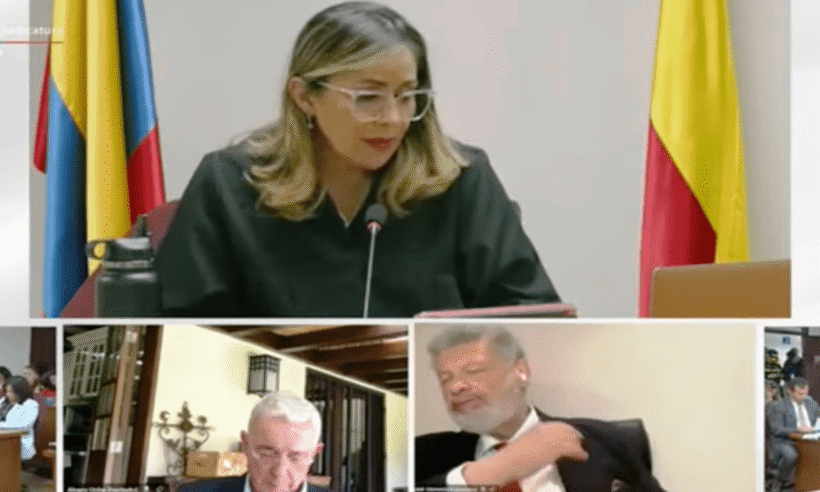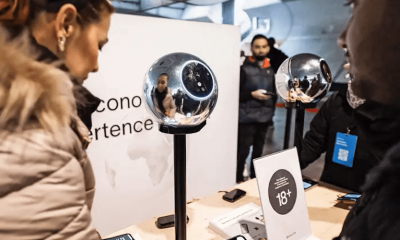Former Colombian President Alvaro Uribe Found Guilty of Multiple Fraud & Bribery Charges
In a historic verdict, former Colombian President Álvaro Uribe Vélez has been found guilty of procedural fraud, bribery, and bribery in a criminal proceeding. The decision, delivered by Judge Sandra Liliana Heredia of Bogotá’s 44th Criminal Court, marks the first criminal conviction of a former head of state in the nation’s history.
In her comprehensive, first-instance ruling, Judge Heredia systematically validated the arguments presented by the Fiscalía General de la Nación (Attorney General’s Office) while dismantling the defense’s counterarguments for each of the charges. The case centered on a years-long investigation into whether Uribe and his associates manipulated witnesses to discredit accusations linking him to the formation of right-wing paramilitary groups.
“The accused (Uribe) knew of the plan,” Judge Heredia stated definitively, concluding that the charge of bribing a witness in a criminal proceeding in the case of former paramilitary Juan Guillermo Monsalve was proven “beyond all doubt.”
Before delivering her verdict, the judge called for respect for the judicial process, affirming the decision was based strictly on law. She acknowledged the “gallantry and cordiality” of the former president throughout the trial. “This is not a trial against the political history of Colombia, it is not revenge, it is not an act of opposition,” Judge Heredia insisted. “It is an act of justice and only of justice.”
The ruling is a first-instance decision and is subject to a multi-stage appeals process.
Systematic Rejection of Defense Arguments
Judge Heredia dedicated significant time to explaining her legal reasoning, particularly regarding key evidence challenged by Uribe’s defense team, led by attorney Jaime Granados.
A central defense argument was that wiretapped conversations between Uribe and his then-lawyer, Diego Cadena, should be inadmissible due to attorney-client privilege. The judge firmly rejected this, stating that professional privilege cannot shield criminal activity. “The practice of law would have been denatured as a means to hide conduct,” she declared, adding that “professional secrecy cannot become a barrier to detecting punishable acts.”
Similarly, the court validated crucial recordings made by witness Juan Guillermo Monsalve on a spy watch, which captured conversations with Cadena. The defense had hired an expert who questioned the integrity of the files. However, the judge found that any technical questions were “not sufficient to deny the identity between the original file, the one delivered to the Court, and the one presented in the oral trial.” She gave full credibility to the testimonies of Monsalve and his ex-partner, Deyanira Gómez, who helped secure the recordings.
Genesis of the Case: An Investigation That Backfired
The complex legal saga began not with an investigation into Uribe, but with one he initiated. On September 17, 2014, Senator Iván Cepeda held a debate in the Senate of the Republic on the history of paramilitarism in Antioquia. During the debate, he presented testimony from former paramilitaries linking Uribe and his brother, Santiago, to the founding of the Bloque Metro of the Autodefensas Unidas de Colombia (AUC).
In response, Uribe filed a complaint with the Corte Suprema de Justicia (Supreme Court of Justice)—the high court for members of congress—accusing Cepeda of manipulating those same witnesses. However, after investigating, the Supreme Court found inconsistencies in Uribe’s claims. On February 16, 2018, it took the dramatic step of closing the case against Cepeda and opening a formal investigation into former President Uribe for witness tampering, setting the current trial in motion.
Next Steps: Sentencing and Appeals
With the guilty verdict delivered, Judge Heredia has scheduled a hearing in August to read the full sentence, which will detail the length of the prison term and the complete reasoning behind the conviction.
Following the August sentencing, the legal process will continue. “Once that sentence is read, all parties are given the opportunity to file an appeal,” explained lawyer Santiago Trespalacios to El Colombiano. “When the appeal is filed, there are five days to support it, and then the decision goes to the Superior Tribunal of Bogotá.”
A three-magistrate panel at the tribunal would then review the case and rule on the appeal. If that second-instance decision is challenged, the case could ultimately return to the Supreme Court of Justice for a final judgment.
Uribe’s lead counsel, Jaime Granados, has noted that the nature of the crimes could allow for alternatives to prison. “We are certainly talking about a scenario where, due to the very nature of the offenses, they admit house arrest,” he stated.


























